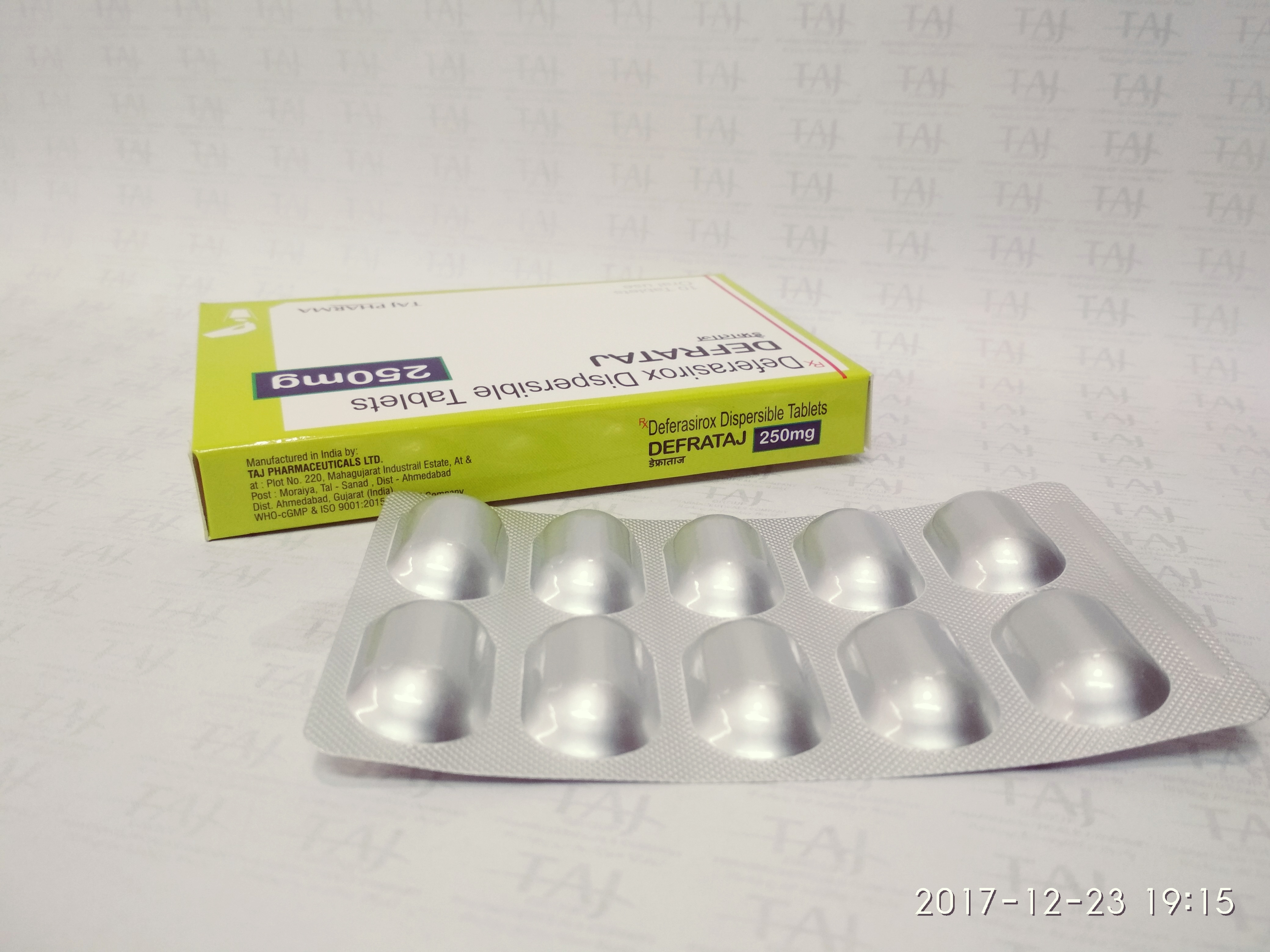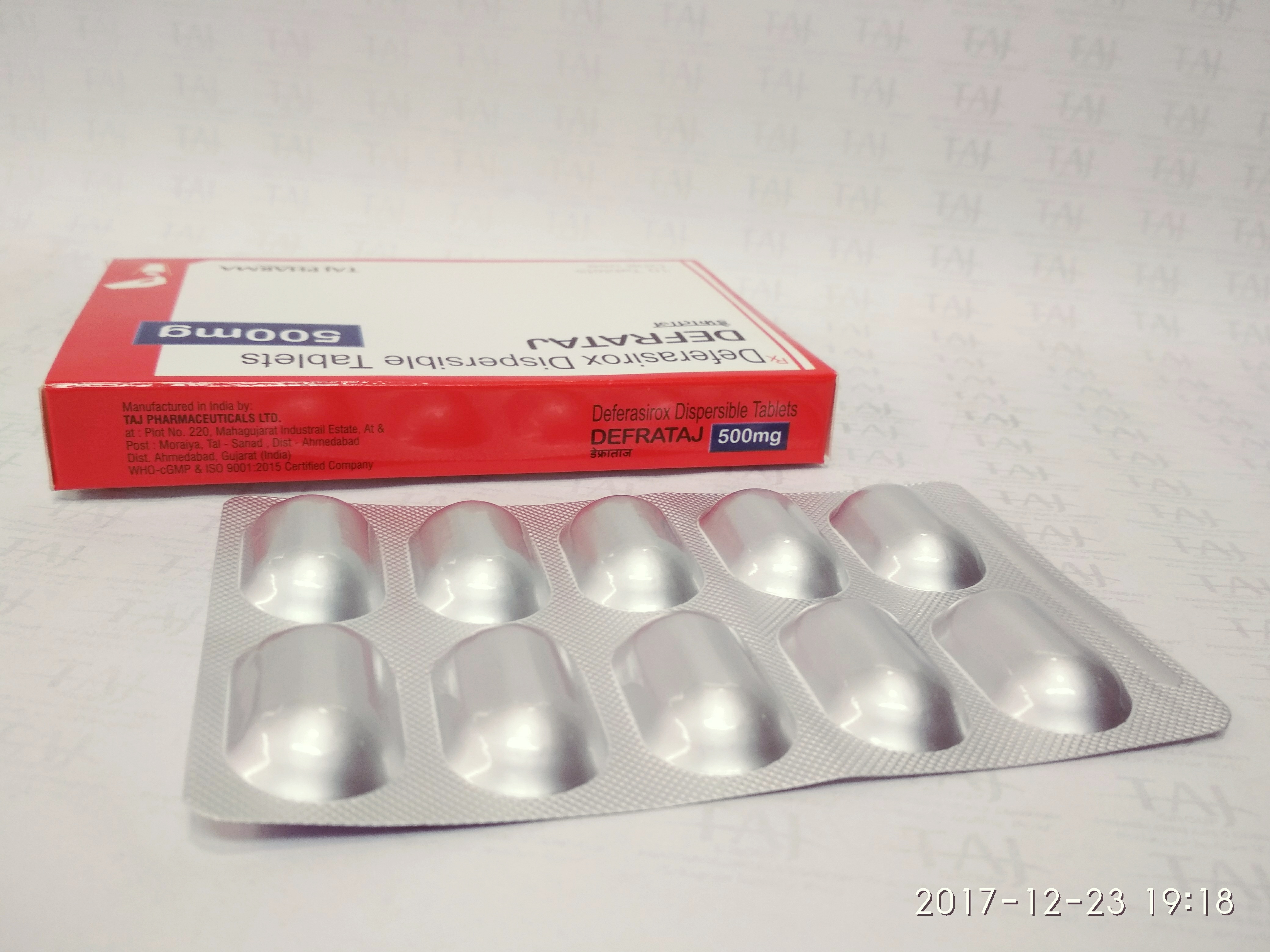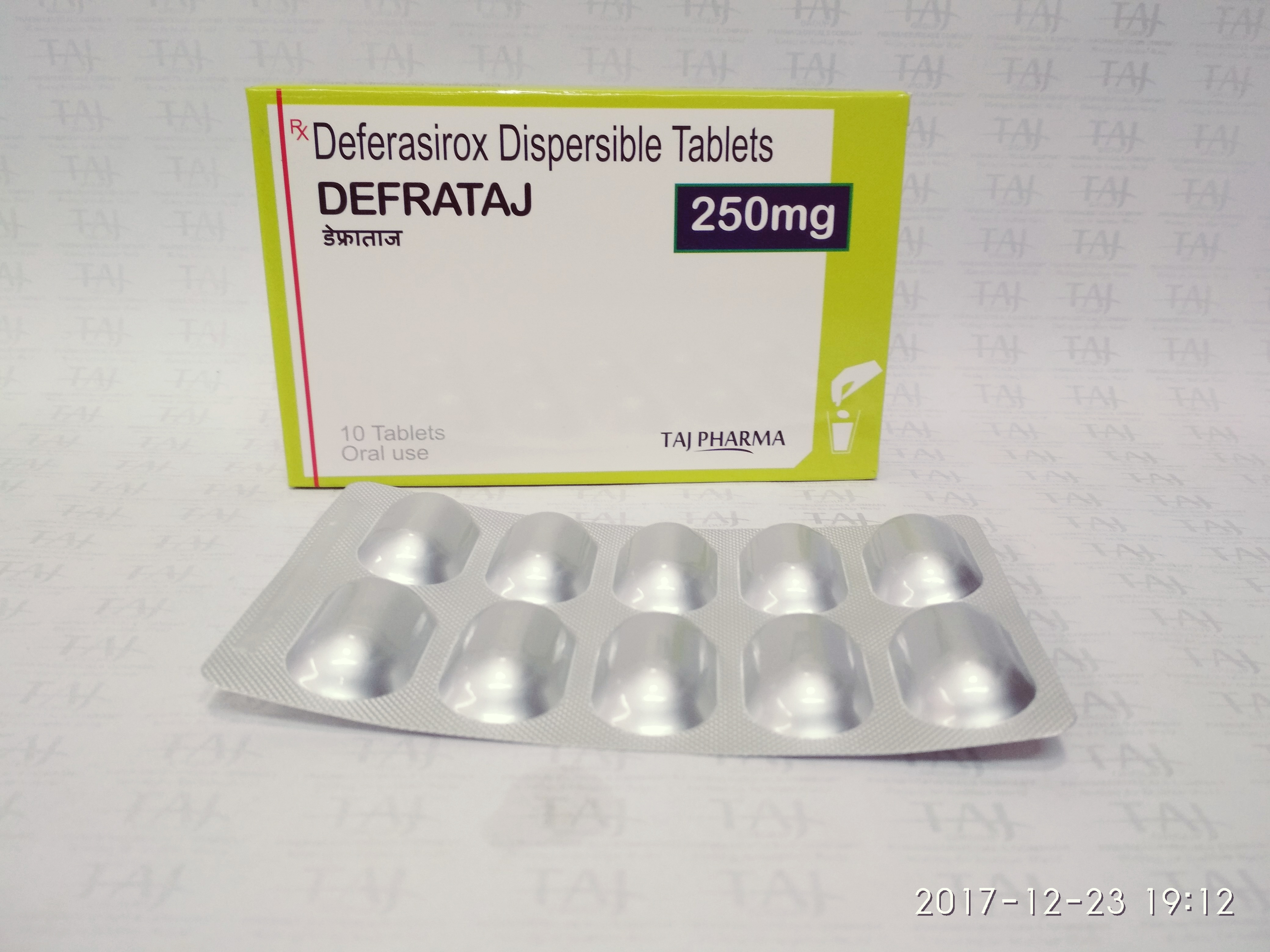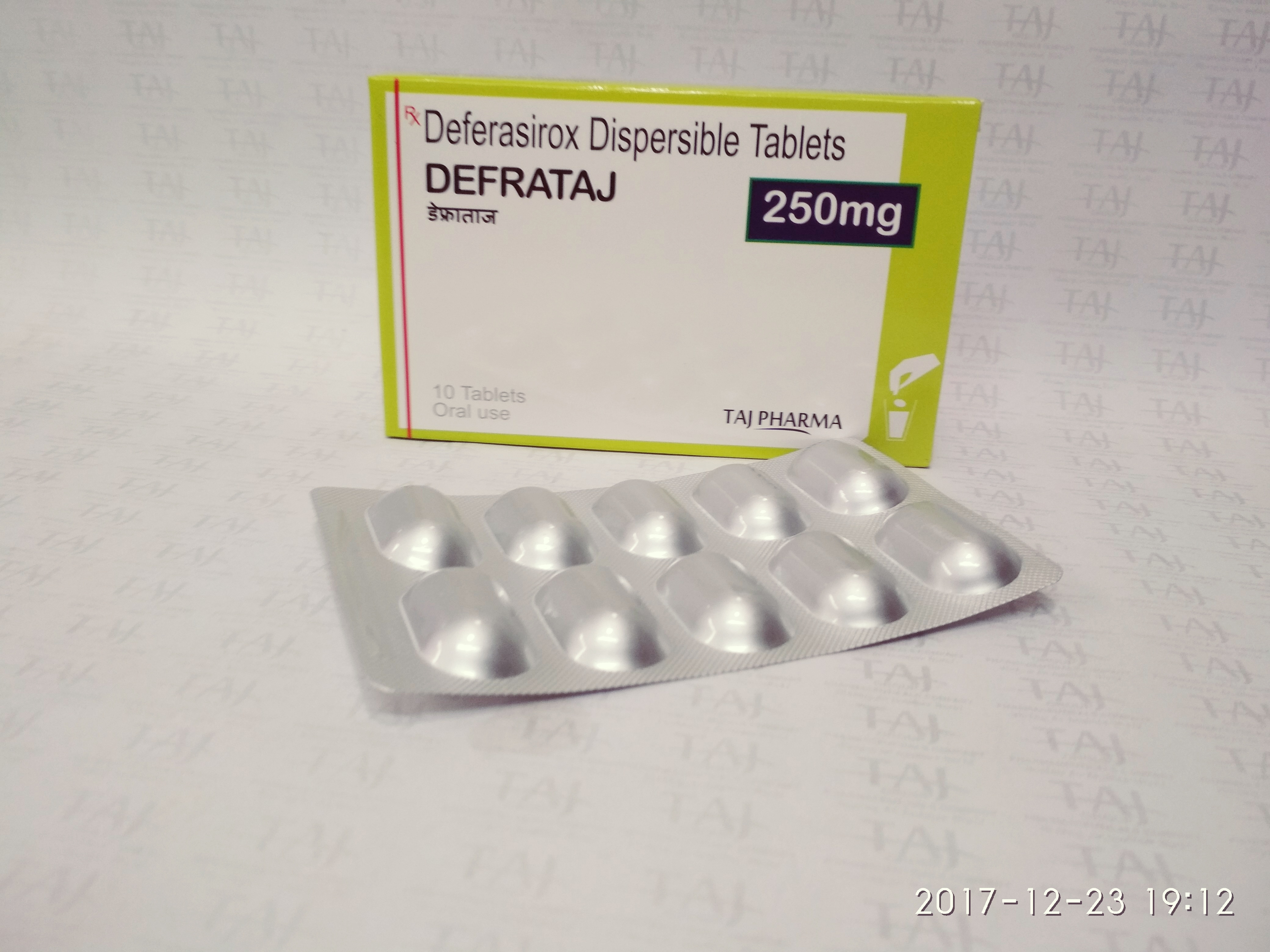Deferasirox is used to treat adults and children 2 years of age and older who have too much iron in their body because they received many blood transfusions. It is also used to treat adults and children 10 years of age and older who have too much iron in their body because of a genetic blood disorder called non–transfusion-dependent thalassemia (NTDT). Deferasirox is in a class of medications called iron chelators. It works by attaching to iron in the body so that it can be excreted (removed from the body) in feces.
-
-
1800-222-434
1800-222-825
Customer FAQ’s
Quick Answer Helps
-
Why is this medication prescribed ?
-
What side effects can this medication cause ?
Deferasirox may cause side effects. Tell your doctor if any of these symptoms are severe or do not go away:
• stomach pain
• nausea
• vomiting
• diarrhea
Some side effects can be serious. If you experience any of these symptoms or those mentioned in the IMPORTANT WARNING section, call your doctor immediately:
• hearing loss
• vision problems
• rash, hives, peeling or blistering skin, fever, swollen lymph nodes
• difficulty breathing or swallowing; swelling of the face, throat, tongue, lips, or eyes; hoarseness
• unusual bruising or bleeding
Deferasirox may cause other side effects. Call your doctor if you have any unusual problems while taking this medication.
If you experience a serious side effect, you or your doctor may send a report to the Food and Drug Administration's (FDA) MedWatch Adverse Event Reporting program online (https://www.fda.gov/Safety/MedWatch) or by phone (1-800-332-1088).
-
What should I know about storage and disposal of this medication ?
Keep this medication in the container it came in, tightly closed, and out of reach of children. Store it at room temperature and away from excess heat and moisture (not in the bathroom).
Unneeded medications should be disposed of in special ways to ensure that pets, children, and other people cannot consume them. However, you should not flush this medication down the toilet. Instead, the best way to dispose of your medication is through a medicine take-back program. Talk to your pharmacist or contact your local garbage/recycling department to learn about take-back programs in your community. See the FDA's Safe Disposal of Medicines website (https://goo.gl/c4Rm4p) for more information if you do not have access to a take-back program.
It is important to keep all medication out of sight and reach of children as many containers (such as weekly pill minders and those for eye drops, creams, patches, and inhalers) are not child-resistant and young children can open them easily. To protect young children from poisoning, always lock safety caps and immediately place the medication in a safe location – one that is up and away and out of their sight and reach. https://www.upandaway.org
In case of emergency/overdose
In case of overdose, call the poison control helpline at 1-800-222-1222. Information is also available online at https://www.poisonhelp.org/help. If the victim has collapsed, had a seizure, has trouble breathing, or can't be awakened, immediately call emergency services at 911.
Symptoms of overdose may include the following:
• yellowing of the skin or eyes
• pain in the upper right part of the stomach
• unusual bruising or bleeding
• lack of energy
• loss of appetite
• flu-like symptoms
• diarrhea
• nausea
• vomiting
• decreased urination
swelling of legs or ankle
-
What other information should I know ?
Keep all appointments with your doctor. You will need to have hearing and eye exams before starting deferasirox and once a year while taking this medication.
Do not let anyone else take your medication. Ask your pharmacist any questions you have about refilling your prescription.
It is important for you to keep a written list of all of the prescription and nonprescription (over-the-counter) medicines you are taking, as well as any products such as vitamins, minerals, or other dietary supplements. You should bring this list with you each time you visit a doctor or if you are admitted to a hospital. It is also important information to carry with you in case of emergencies.











